Summary: A church shows up to help in huge numbers, and we were not ready for it. We form new relationships with those who have been unhoused after being forced to relocate. A couple living in a field gets new hope, and we’re reminded that outreach isn’t all about kumbaya moments. Rather, sometimes flat-out dangerous.
Read Time: Seven minutes
This outreach was unlike any other we’ve had before. I know I’ve said that before, but it’s true — every month writes its own story. The last Saturday of July was no exception. The faces were familiar, but the day came with something I wasn’t ready for: help.
Not the “one or two people lending a hand” kind of help — a flood of it. A ton of people had shown up to volunteer. They were all from the same church, but not a “big church” in the way most people think of it. Just a small congregation with a big crowd that morning. Honestly, I’d never seen anything quite like it. They had invited me to speak a few days earlier. On short notice, I went in unprepared. I thought my presentation was like a plane that lost its engines in flight. I figured my rambling talk would be the last they’d hear from me. But God had other plans.
We had so much help, we had men standing around eager to take the bull by the horns. I was embarrassed. It never occurred to me to come up with an “in case too much help shows up” plan. I’m always on the “what to do when we don’t have enough” plan.
Out of desperation to appear to know what I was doing, I advised them to knock on doors, letting all of the people who live there know what we had. That’s always been my thing. But in the moment, it felt right to hand that over, for this time anyway. Having been relieved of that, I was able to enjoy mingling in the crowd. That’s the part everyone wants to enjoy, and I got a part of it. It felt good.
A couple of these men encountered residents with mobility issues and returned to me for guidance, providing the room numbers and seeking advice on how to assist. That moment struck me. I found it profound that it wasn’t just that they followed through — it was the way they carried it. For years, knocking on doors had been my thing, the part of outreach I guarded closely. But when I let it go, they didn’t treat it like a chore. They noticed who couldn’t come out on their own. They came back, not to show off, but to ask how best to help. It was as if the keys had been passed for a moment, and instead of misusing them, they unlocked something deeper: the truth that love multiplies when it’s shared.
The people who lived in the area most commonly referred to as Tent City have been forced to relocate to another camp. I’ve been visiting there more often, and I’m beginning to form new relationships. Some that I was not able to reach before. One is a ghost who is hardly ever seen. On my last visit, he escorted me deep into the camp. I had been here once before, a couple of months ago, but I had gained access from the other side. At that time, only one person was living here. I estimate about twenty now. And I’m sure there are a few more than I’m not seeing.
Stella was there — barefoot as always, weaving scraps into jewelry. Ed, I hadn’t seen him the week before, but I hadn’t been that deep into the new camp either. And Karen — the volunteer who swore she could never handle going into camp — stepped past the tree line for the very first time. On paper, these moments look small. They’ll never make it into a grant report or be tallied up on a spreadsheet. But out here, this is what matters. It’s the love of Christ manifesting right before our eyes. These are the real milestones — not the kind discussed by committees, but the kind that carry weight where people bleed and breathe.
Not long after, I found myself in a boardroom with agency leaders who represent the unhoused. I listened as they described what they thought our community looked like. But the picture they painted didn’t match what I’d seen with my own eyes just days before. When they asked me to speak, I couldn’t, not because of fear. I was stunned. Their words were miles away from the mud still on my boots inside my truck in the parking lot. And in that moment, silence felt truer than speech. I wasn’t going to toss a handful of polite sentences over the distance between us. So I just sat there, holding it, and let the weight of the quiet speak louder than I could. I want to help. I don’t know how. I feel like some of these folks have good intentions.
On the morning of the third Saturday of August, we arrived at The Cadillac Motel. The timing is different for us, as we show up on the last Saturday of every month. However, we had been invited as guests by yet another small church with a handful of people that was serving a hot breakfast. For us, it wasn’t our usual large setup — no trailers full of totes, no endless sorting of food. We brought a few extra items, including cereal bars, applesauce, cookies, frozen bread, hand sanitizer, and a couple of tents set aside for someone in need.
It’s unusual to see church people out in the wild like this. I’ve seen more of it this year than all of the years we’ve been doing this outreach, combined. Not the heavy hitters, but small pockets of people. I was involved in a large church fifteen years ago and remembered it was a whole lot easier to drop money in an envelope for some ministry overseas and call it obedience. That way, I could check the box, feel righteous, and still keep driving past the man with the cardboard sign on the corner. If we, as a body of believers, helped an individual, it was usually because they had jumped through a specific hoop. Otherwise, the security team had protocols to follow when someone showed up asking for something, and they were quickly and quietly dismissed. The Great Commission made that convenient — “go into all the world” sounds heroic. But “love your neighbor”? That’s messy. That’s inconvenient. That’s showing up.
But Jesus didn’t give us an escape hatch. He instructed us to invite the poor, the broken, and those who are often overlooked by society. He didn’t say “if they’re on a different continent”. It’s easy to pick and choose scripture to suit ourselves, I know, since I do it all the time. Having said that, as one of the wealthiest countries on the planet, I applaud those efforts to spread the gospel and provision to the ends of the earth. I’m merely suggesting that the big church consider broadening its reach with its often-abundant resources.
The church played music through a car speaker. A young woman twirled a bright red flag in time with the songs. Another man, who told me he was homeless himself, joined her with a gold flag. It gave the place an atmosphere — not polished, not professional, but strangely warm.
A couple I’d been told to look out for found me there. She had serious mobility issues and leaned on her walker in the heat. They’d taken a bus just to find us. They told me they had been living in a field with nothing to sleep on. Or in. We talked, shared water, and eventually I was able to set them up with a tent, bug spray, and a backpack filled with what food they could carry. Allegedly, the Welcome House had arranged temporary housing for them, so this setup was supposed to be temporary.
I offered to knock on doors. Walking the grounds reminded me again how many live out of vehicles at the Cadillac. I passed a van with windows covered, belongings strapped to the roof, and makeshift seating outside. A home on wheels, precarious but real. It can be quite an advantage to park outside a friend’s room. The parking space is paid for. And if you’re fortunate, your friend will let you come in and use the facilities. That’s huge.
After the Cadillac, we headed to camp. A couple of the church members asked to come along. I never want to play gatekeeper — it isn’t my home we’re entering. We each grabbed as many jugs of water as we could and started down the muddy trail. Even in drought, runoff from the hill keeps areas of the trail a mess to contend with.
Camp was quiet at first. Something is off; nobody is at home. Radar was in his tent with his girlfriend. A little further in, I found Ben — a veteran, humble and respectful, constantly calling me “sir.” He looks out for his neighbors. Then the air shifted. Dead fish floated in the nearby river, breaking down into the water itself. Their decay and other smells leaked that sharp, stinging smell that clings to your nose — proof of how fast life can sour into something toxic. The further we went in, the worse it got. Eyes burning, chest tightening. We couldn’t go further. That’s when I realized the timing of it all. A man who joined us stopped me and quickly explained what was happening. I didn’t know. Otherwise, I would have continued. I don’t think that was a coincidence. I believe God put him there to warn me, to give me eyes to see and lungs that still work. We set the water down, turned around, and walked out of camp with the rest of them.
Outreach isn’t always kumbaya moments. Sometimes it’s ugly, dangerous, even deadly. You can smell death cooking on the fire, and you know it only takes one mistake or one desperate moment for a life to vanish.
Our outreach happens on the last Saturday of every month. We begin at the Cadillac Motel, then move on to wherever people without housing are living — often in camps tucked out of sight. When resources allow, we’ll also stop at one of the larger housing complexes. We don’t have grants or outside funding. Everything we carry comes from donations, and everything is given freely — no forms, no proof of income, no strings attached. Just people helping people.
All of the real names used here were used with permission. Otherwise, the names have been changed. To protect the identity of those photographed, they have been blurred intentionally unless consent was given before publishing.
The Safer Kentucky Act, which went into effect on July 15, 2024, makes sleeping or camping in public areas illegal, including on sidewalks, roadsides, under bridges, or in parks, parking lots, garages, or doorways. The law creates a new offense called “unlawful camping” that can result in arrest and fines. Assisting those individuals is considered to be aiding and abetting, which is a legal doctrine that refers to the act of helping or encouraging someone to commit a crime. The person who aids and abets is generally held to the same degree of criminal liability as the person who commits the crime. We ask that you please not attempt to locate or visit Tent City.
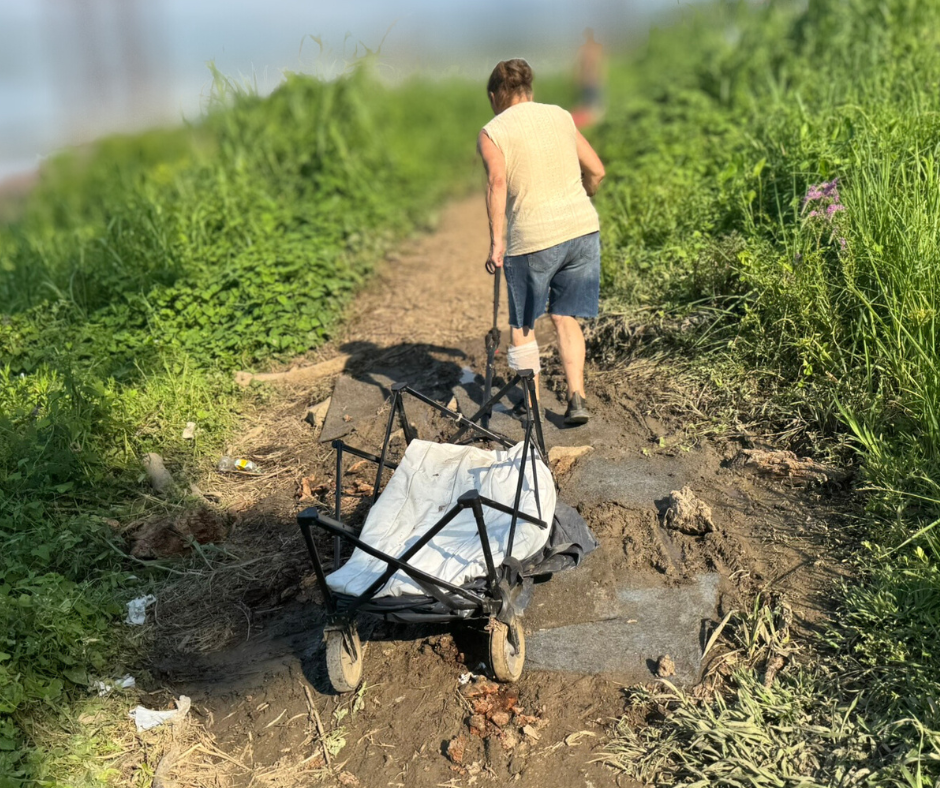
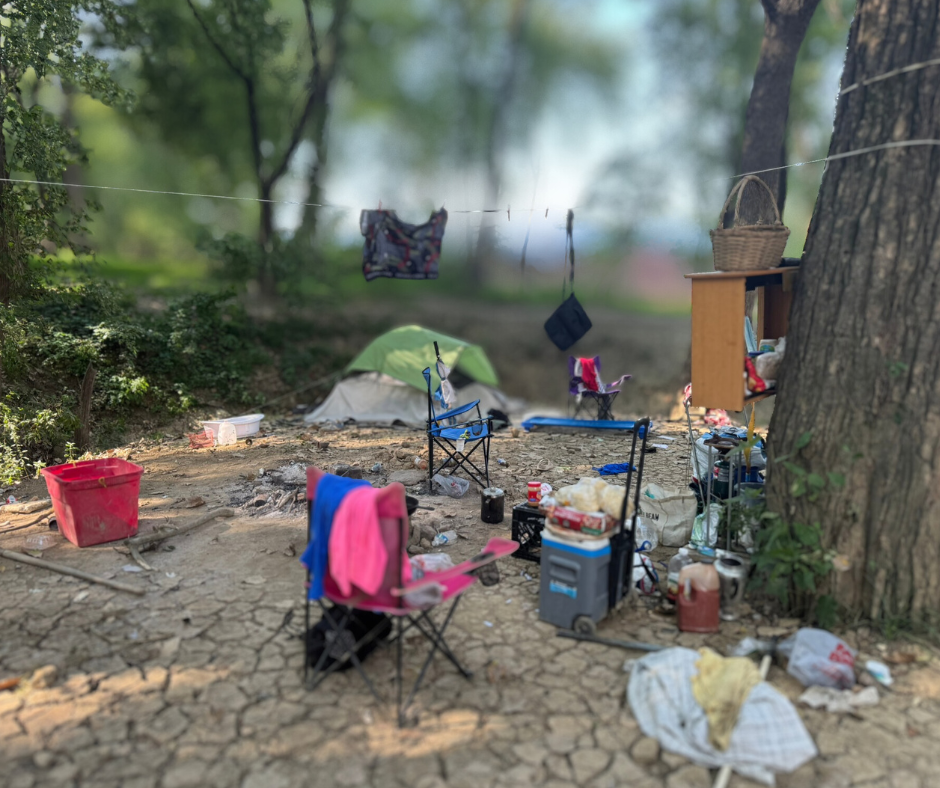
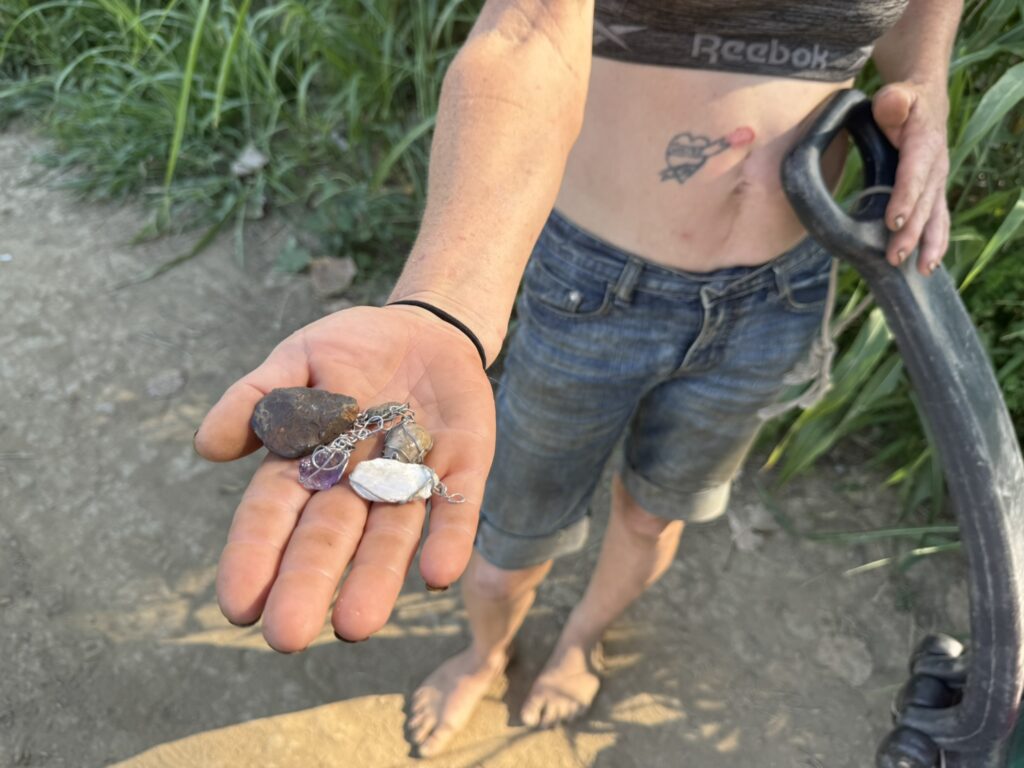
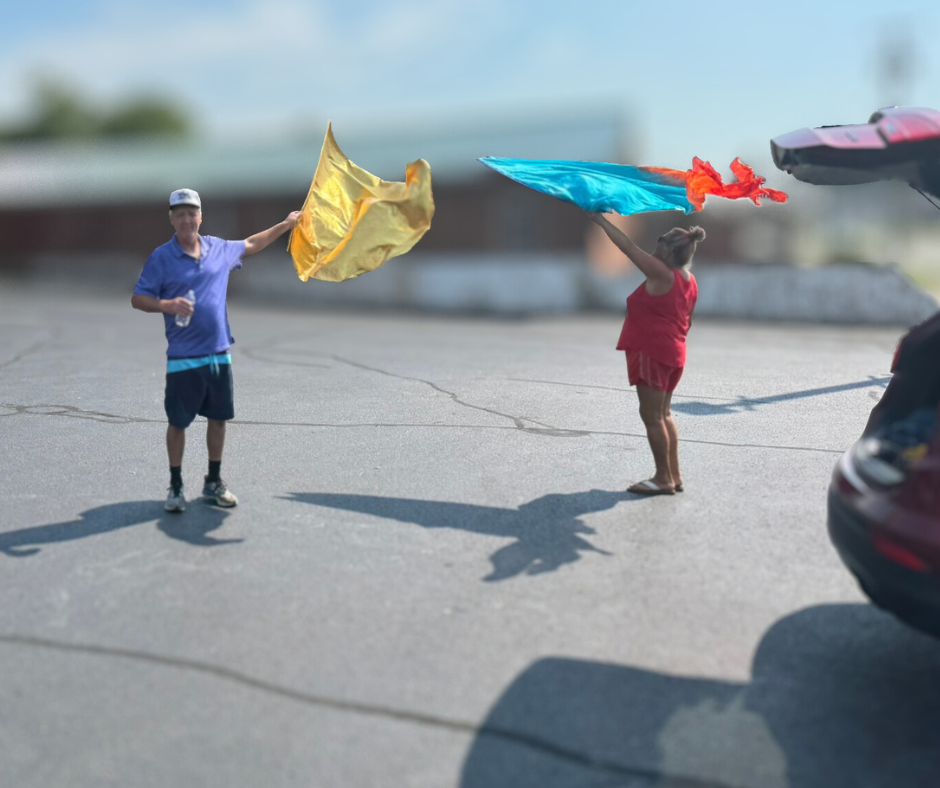
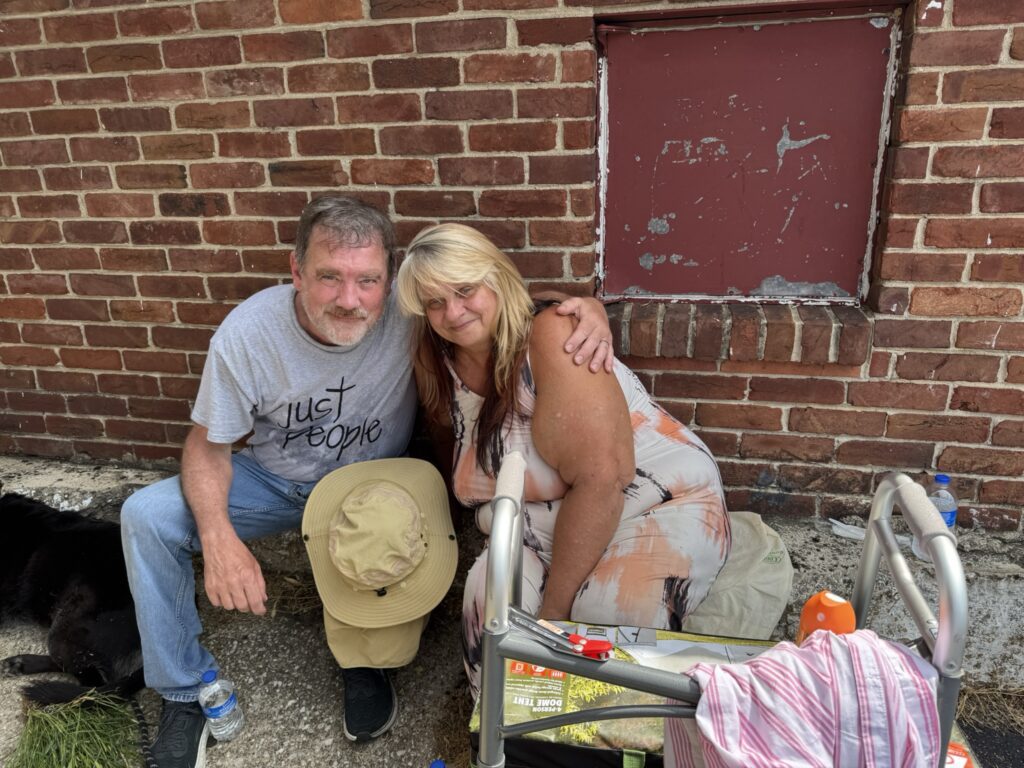
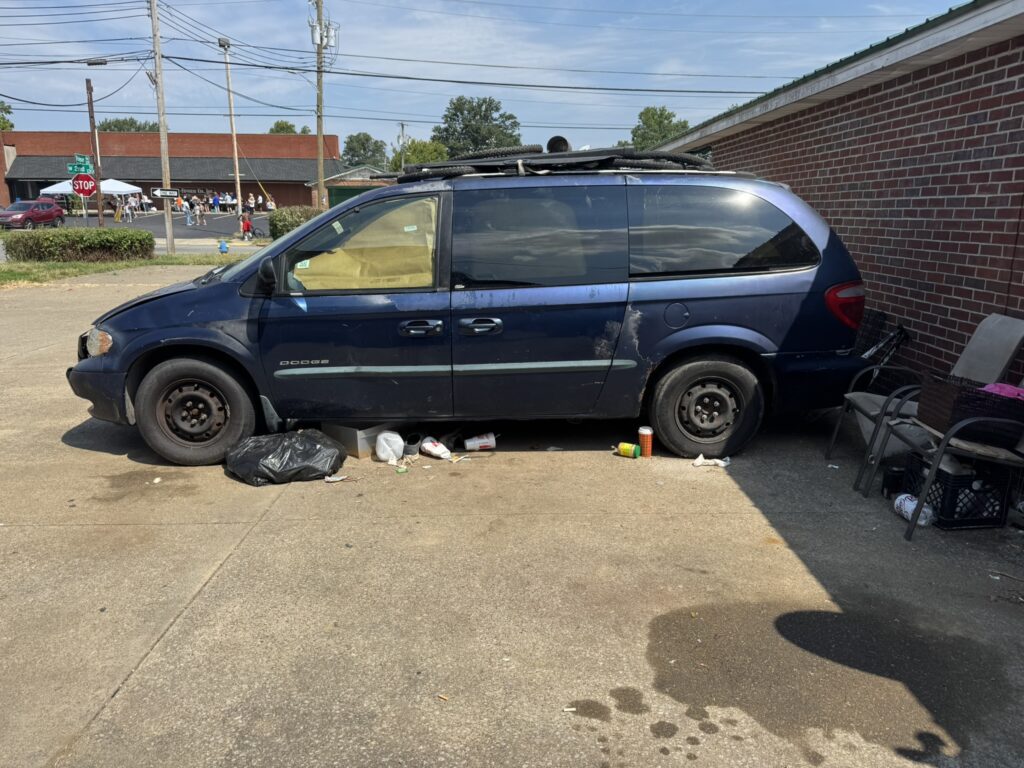
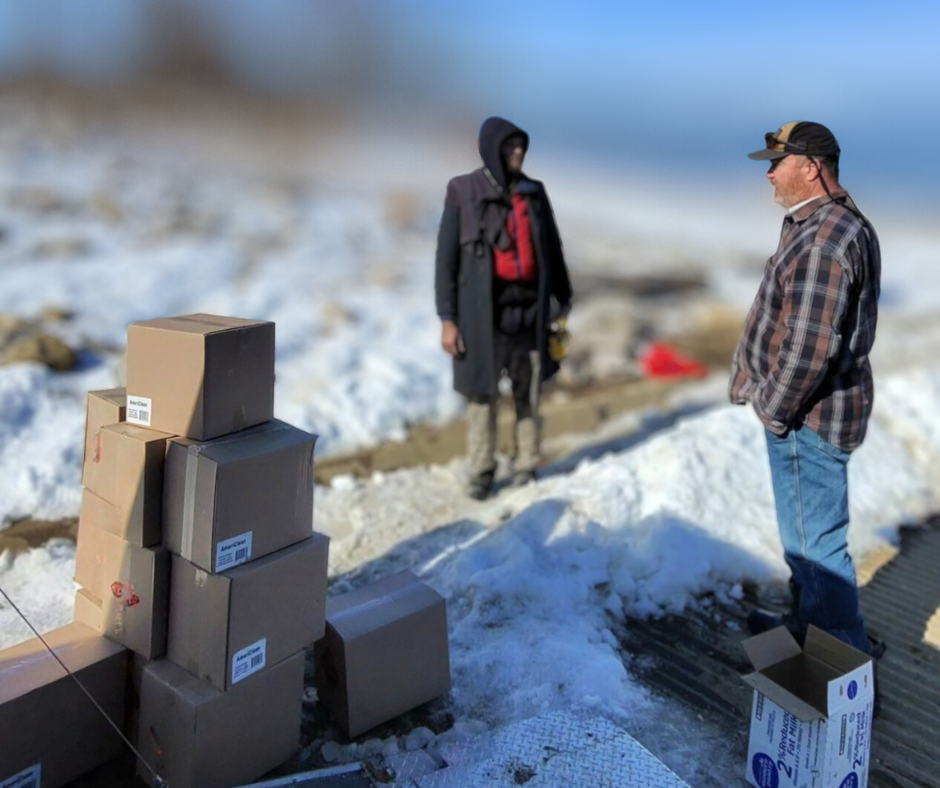
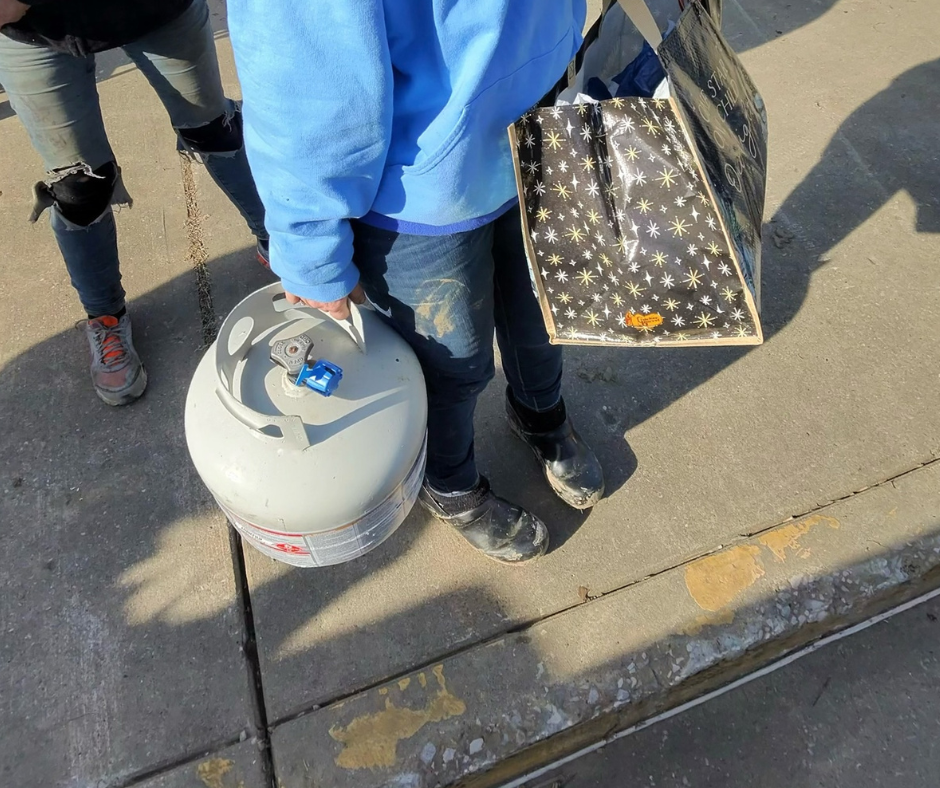
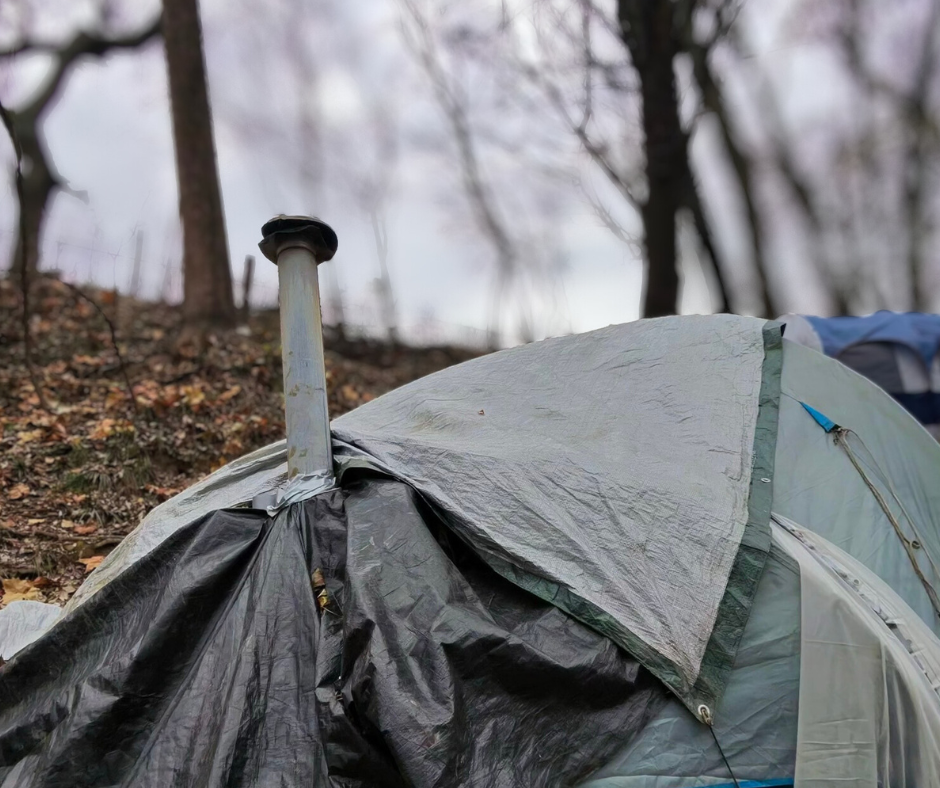
0 Comments